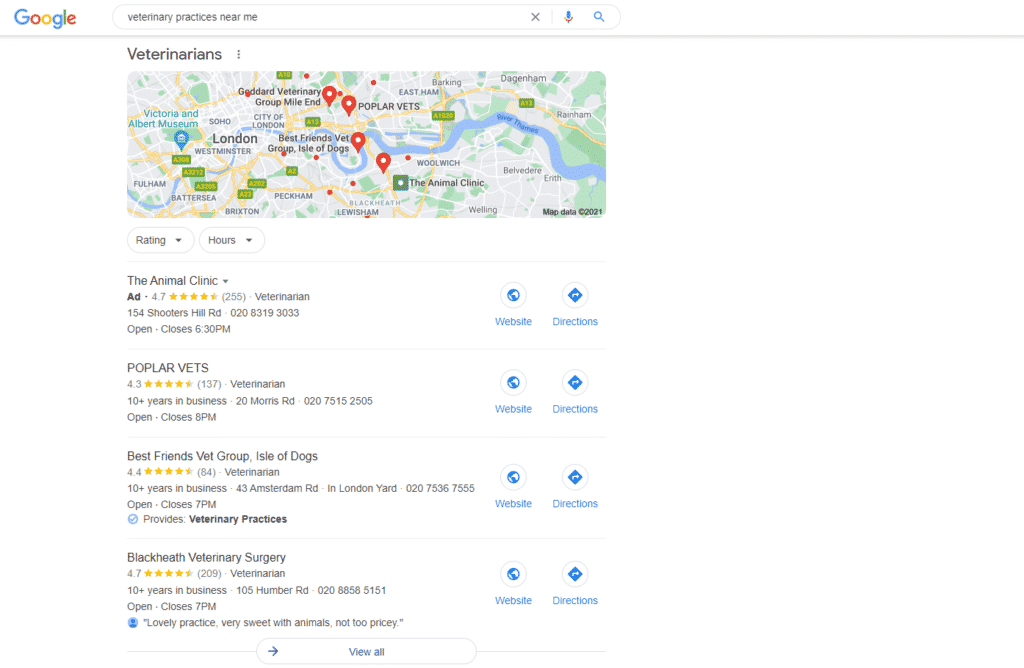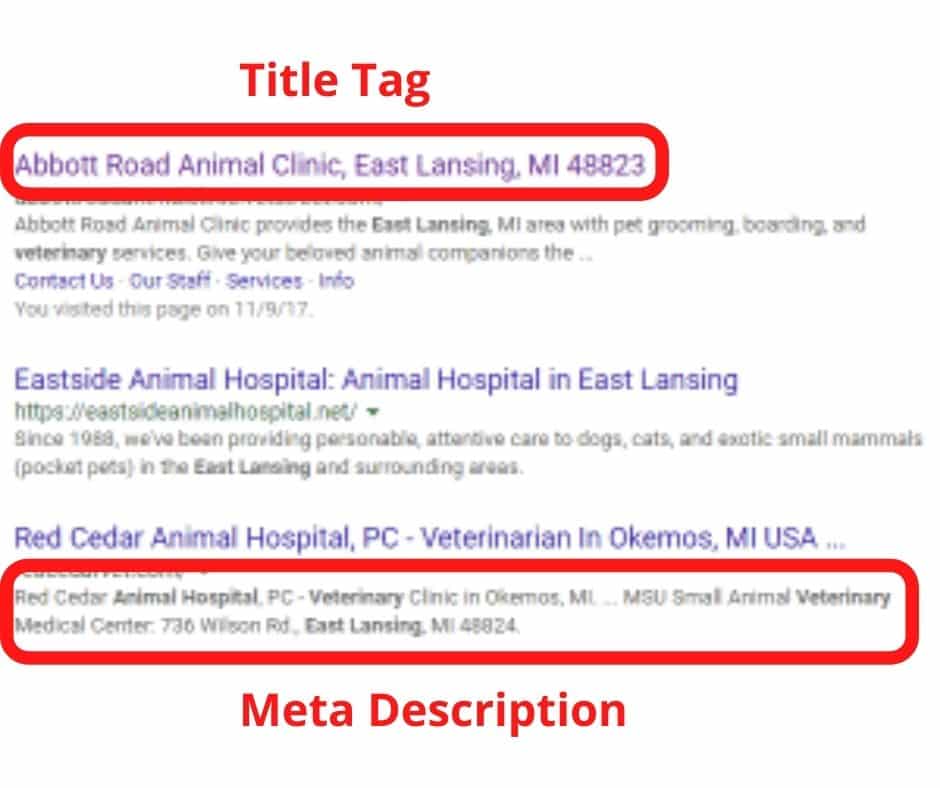Veterinary SEO: 10 Ways To Improve Your Practice’s Ranking on Google

Every competitor wants to be at the top of the search engine results, and it’s the same in the world of veterinary practices, as veterinary SEO works in the same way as any other form of SEO. It can seem somewhat mysterious to the uninitiated, but there are ways to improve your Google rankings. Because Google’s algorithm is always evolving, your veterinary practice needs to stay up-to-date. But how can you improve your practice’s ranking on Google?
What Is Local SEO?
Local SEO requires a focus on a variety of different ranking factors. It is an SEO strategy that helps your business to be more visible in local results in Google’s searches.

To rank for local searches, you have to combine different ranking factors, as Google’s algorithm will rely on so many different signals. Getting your business to rank up is more difficult, but let’s dive deep into some of the key areas that can help you rank locally.
Free eBook: Digital Marketing for Veterinary Practices
10 ways to improve your veterinary SEO:
1. Optimize your website for keywords
You have to start with coming up with a list of keywords you want your website (different pages) to rank for. Once you have determined them, you need to add those keywords to your website as much as you can but as it makes sense (keyword stuffing will negatively impact your ranking). Your keywords are crucial to your ranking, so it needs to be within, your title tag, meta description, and content. The image below indicates what a title tag and meta description is.

2. Check the site’s speed
User experience, commonly abbreviated to UX, is one of the key page ranking methods for Google. If your website loads fast, users are more likely to stay and return. There are main tools to check the page load times, including Google PageSpeed Tools.
3. Have a mobile friendly site
There are many more searches conducted on mobiles than on laptops. This will have significant implications for the ranking of your site. If your website isn’t mobile-ready, this lowers your Google ranking. The algorithm is also programmed to look for the load speed, and if your website isn’t loading on mobile devices, this will affect your ranking. In fact, 57% of users say they will not recommend a business if it has a poorly designed website on mobile.
4. Create informative and quality content
Google created EAT to guide their search engine results pages. EAT, short for expertise, authority, and trustworthiness can impact several aspects of your website. Websites need to be considered authorities in their industry. Creating trustworthy content will improve your rankings. Creating informative content can be done through a number of approaches, including outsourcing to blog writing or working with digital agencies. However, the best of all is using your internal experience and sources to create useful content. For eg: your own vets writing about pet care for your website will have a lot of value.
5. Use Google Analytics
You need to set up your website with Google Analytics, as this tool can help you track conversions and sign up to your website while also giving you insight into the speed of your website’s common keywords, and significant other factors. Because it is designed by Google it is one of the best ways to improve your website ranking.
6. Stick with a standard URL structure
The age of your domain doesn’t Factor into Google’s ranking, but if you change your URL, this will have a direct impact on how your website performs. When you change your URL, this can break all existing links to your website unless you create proper redirects. You need to keep your URL structure the same, and if you need to move some of your site’s content, you need to add redirects.
7. Improve your website’s architecture
Good quality website architecture means logically organizing the information. As a rule, it should take no more than three clicks to get to the deepest part of your website. If your website is confusing, users will go back to the search engine results page, which increases your bounce rate, which is the percentage of visitors who enter the website and then leave rather than going deeper into the website.
8. Claim pages on major directories
Google is the highest-ranking directory than others, but to boost your local SEO ranking, you can add your business through Google Maps and claim your business via the same process
9. Emphasize positive reviews
Another key aspect of local SEO ranking is to have more positive reviews. Google will reward businesses with positive reviews more favorably.
10. Be consistent
Finally, Google rewards websites with accurate information across every platform. Ensuring that your contact information on your website is consistent with social media is important. Additionally, you need to make sure that everything is consistently spelled, for example, the spelling of “Road” can be abbreviated to “Rd.” The small details will help Google cross-reference information on specific pages.
Conclusion
Veterinary SEO (Search Engine Optimization) is the defining factor in improving your search engine rankings. 0.78% of all Google searches click on results from page 2 of your search engine results page and as SEO will drive 1000%+ more traffic than organic social media, it is more important than ever to improve your practice’s ranking.
About the author
